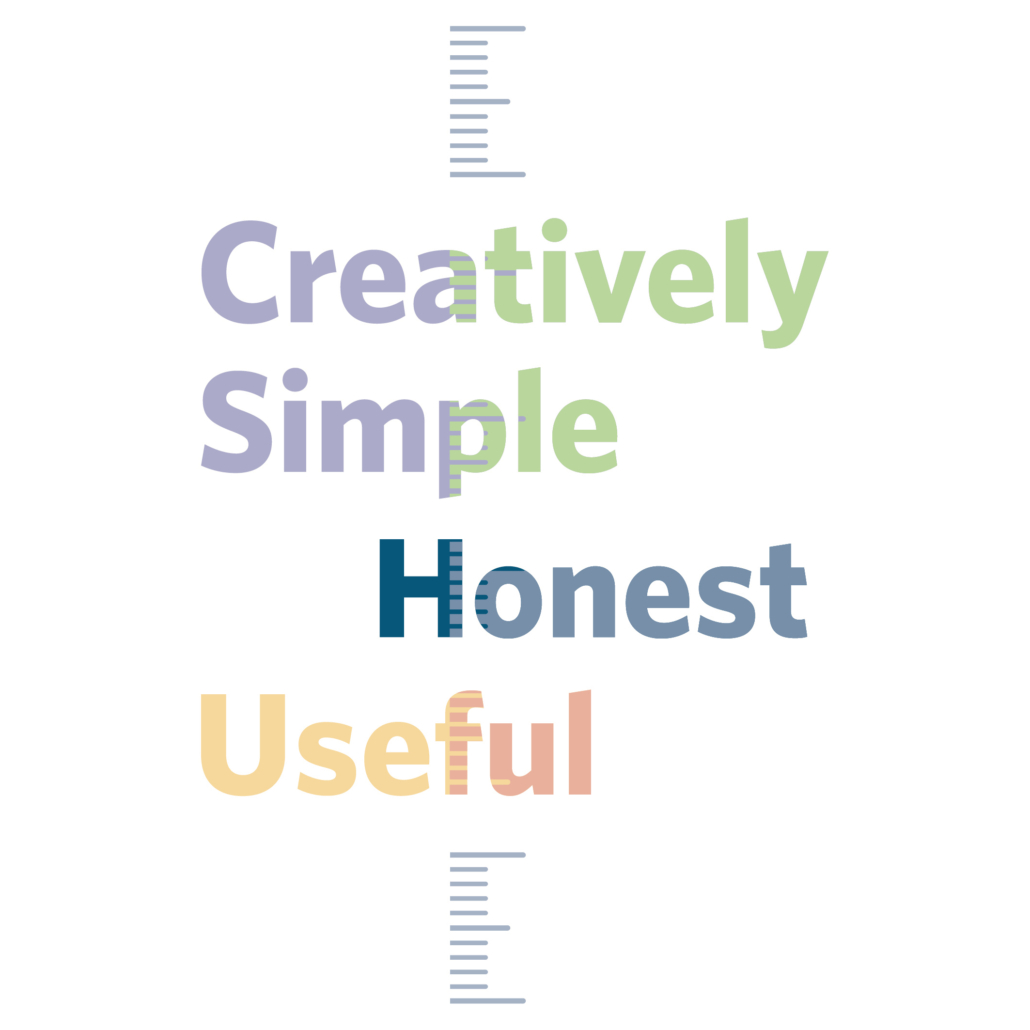At The Evaluator, we have always had a clear idea of what we do and why we do it. In 2024, we have clearly defined that with a statement of values.
The values represent who we are at heart, and what we do for our clients, as well as underpinning all of our work.
What are business values?
Business values are described as the core principles and standards that guide a company’s actions, decisions, and behaviours. They represent what a company stands for and are essential in shaping its culture, brand identity, and strategic direction. These values influence how a company interacts with its employees, clients, funders, and the community in general.
By clearly defining and consistently using values, organisations can create a strong, positive culture and a sustainable competitive advantage.
The Evaluator Business Values

Our values are shown on the image above and are; Honest, Useful and Creatively Simple.
Core Value for The Evaluator: Honest
Honesty matters to us. When decisions are to be made about data – people need to feel that the results are honest. We need to be honest about how we have collected data – what questions did we ask, and where did we ask them. We are by nature, honest people, who say the truth, and that is the secret to our success. Honesty builds trust, and our clients know we will tell the truth. That means funders can trust our impartial evaluation too, and that has many benefits for our clients when it comes to applying for funding in the future.
Core Value for The Evaluator: Useful
What we are really passionate about is getting our clients to use data to make decisions! We want people to be inspired and enthusiastic about data, and what it can do for organisations. That means, we spend a lot of time focussing on what data people need and how they can use it. We train clients and the organisations we work with on how to collect the correct data, and how to understand the data. We often collect data for people too. What is essential to this value (usefulness), is that we collect the right amount of data which we can use. We do not collect large amounts of data that is stored and never looked at. We collect the right amount of data, which is often less than people expect, and use what we have collected. The secret to powerful data is about how it is analysed and used, not how much of it there is!
Core Value for The Evaluator: Creatively Simple
Data can be complex. We spend a lot of time and energy making it creatively simple for people to work with us. Examples of creatively simple ways to collect data are things like – sticker boards, marbles, hula hoops and giant dice. These have all featured in our work! There can also be creatively simple ways to demonstrate complex results and personal experiences to clients. This is a value that we are always working on in order to improve.
Why did we choose these values?
Founder and Director, Kirsty Rose Parker, explains “We have been working hard behind the scenes on articulating what it is that makes us stand out. Sharing our core values is the first step of this. We have looked carefully at all the steps that make up an evaluation with us. From listening to people at the beginning, to being creative with our methods at evaluation design time. We regularly challenge ourselves on how to be simpler, how to be more creative and also on how our work can be honest and useful. These values are now an everyday part of The Evaluator – helping us to grow as a team, whilst retaining our quality service and products.”
Why do values matter in evaluation?
These are our values, but we also often include client’s values in the evaluations we plan. We have helped clients decide what values work for new projects in the past, and then used those values to form the materials we create for clients. Having a short and memorable set of values is a great way to give new teams a frame of reference for their work. We look forward to a value-driven future creating great partnerships and measuring even more values.
If you are interested in measuring your values or helping to define them, then please get in touch on info@theevaluator.co.uk or call 01756 532 538 to book an informal discussion.
If you like what you have read here, but are not yet ready for a discussion, you can keep in touch with us by joining our mailing list or connecting with Kirsty on Linked In.
The link for our mailing list can be found here.
The link for connecting with Kirsty on Linked In can be found here.







